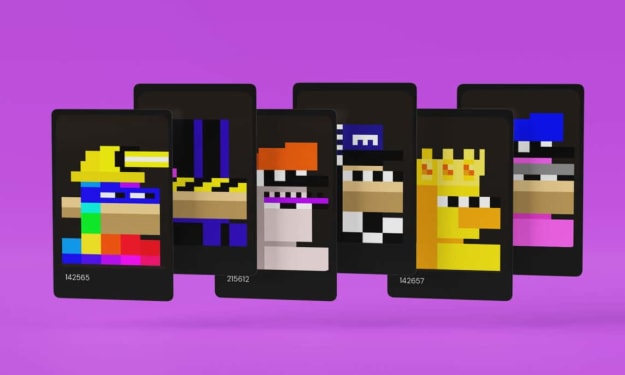If You're in the Real Estate Business, You Need to Learn About Blockchain
When everyone in the tech industry was writing about how blockchain technology was poised to revolutionize the entire world of business, they weren’t exaggerating one bit.

Disrupting this, disrupting that—tech bloggers, industry pundits, market forecasters, and anyone with dollar signs scrolling across their corneas absolutely loved to apply the word “disrupting” to any title or SEO meta description.
For those who know the bare minimum about blockchain or have heard of it but still have no idea what it is, what it does, how it works, or whether you spell it “block chain” or “blockchain,” you may not be alone but you’re nevertheless really behind.
So, for those who were never lured by all those articles entitled Blockchain Is Disrupting the Financial Industry or Blockchain Is Disrupting the Medical Industry, pay close attention because your real estate business is about to be disrupted by this technology.
Blockchain in a Nutshell
Unlike thousands of other articles that delve into complicated, high-tech mumbo-jumbo no normal person has even heard of, a simple and easy-to-digest analogy will be used. But, first, it’s important to understand the problem it solves, since the need to solve problems is usually what forces innovation.
The area of the problem lies in the financial industry’s reason for existing: trust. One facet of the financial industry that profits big time from humanity’s lack of trust and trustability is the escrow business. If you’ve ever bought something off eBay or some other online shop, more than likely you either used or were offered the option to use PayPal to complete your payment.
Google something like “PayPal complaints” and you will find out that “the faster, safer way to send and receive money” isn’t always fast or safe. From buyer fraud to PayPal deciding you’re not a real person and freezing your funds until you submit a DNA sample, this online escrow company could succeed in giving even a heavily sedated individual an aneurysm.
Just in case you haven’t gotten the point just yet, earlier this year, PayPal sent a deceased woman who lost her battle with cancer a letter stating, “You are in breach of condition 15.4(c) of your agreement with PayPal Credit as we have received notice that you are deceased... this breach is not capable of remedy." Unfortunately, it was her still grieving husband who had to deal with this “error.”
You may be asking yourself, What does this have to do with the price of tea in China? It has absolutely nothing to do with the price of tea in China but everything to do with getting rid of the middle person when conducting online transactions or international money transfers.
See, PayPal promises its users that they can trust it to act as a go-between, ensuring that the seller and buyer won’t be scammed by the other. For example, in the case of new sellers with a insignificant transaction history, PayPal will “hold” the payment until the buyer confirms they received their product and it’s in good condition, at which time the seller will be able to access their funds.
PayPal also ensures sellers that if a buyer somehow succeeds in scamming them, PayPal will cover the price of the item or service lost. But all of this comes at a price, with sellers typically seeing a 2.9 percent deduction from their payments received. So if you grossed $100,000 over the course of one year, it would cost you nearly $3,000.
As for blockchain, back to the promised analogy. Imagine for a moment you wanted to sell your 2017 BMW i8 (may as well be rich in our imagination). In order to do this, you have to get onto a stage in front of a live televised event where millions of people were acting as witnesses.
Someone is interested in purchasing your i8 but doesn’t have the money to pay cash at that moment, so instead, they offer to trade their Paul Newman's Rolex Daytona, valued at over $17 million. Who cares if the i8 is only $150,000. It’s our imagination, where we used to own a Baskin Robbins as a kid so we could eat ice cream every day, whenever we wanted, no parents or big, annoying brother.
You jump on the deal and hand over the keys to your i8 and the other person hands you their Paul Newman's Rolex Daytona, all of which was witnessed by millions of people. All of these witnesses then declare that, without a shadow of a doubt, the Rolex is now yours and the i8 now belongs to the other individual.
If one out of those millions of witnesses, for some reason or another, decides a week later that you never gave the other person your BMW i8 in exchange for that specific Rolex, all of the other witnesses will refute that claim, securing you from blame. On the other hand, if you had a spare key made for the i8 before you made the transaction and try to give the car away to another person, again, the audience will confirm that it is owned by someone else and not you.
How is that any different than PayPal other than we’ve added millions of middle people instead of one company? That’s a great question with a simple answer: The audience was only a representation. The blockchain is actually comprised of millions of computers that record events. Each computer stores a record of the event in an encrypted, virtually hack-proof public ledger for all to see.
There is no human involvement beyond the initial initiation of the process.
On top of that, as for Bitcoin and Altcoins, merely applications that use blockchain technology, transactions take no longer than an hour, but in most cases occur instantaneously and cost no more than a few cents, no matter the amount. PayPal takes up to five working days to transfer money to your bank account.
How Blockchain Technology Can Help Your Real Estate Business
Businesses are beginning to grasp the fact that consumers expect more transparency and honesty. This has always been the driving force behind blockchain technology since 1991 when W. Scott Stornetta and Stuart Haber proposed the idea of “a cryptographically secured chain of blocks” intended to prevent timestamps on documents from alteration.
And though the commercial real estate (CRE) industry has long been proud of concealing a few aspects of how it operates, like comparable lease rental rates, property valuations, and property prices, technology is making it difficult to keep very many secrets. Disintermediation is thriving as startups are sharing some of this information with the public, free property reports and listing real estate agents according to their agent fees, terms, and experience.
However, a large portion of the information is digitized and hosted on disparate networks, resulting in a lack of efficiency and transparency. In turn, there is a higher rate of inaccuracies that open the door for fraud and other unscrupulous practices. Blockchain technology will force the CRE industry to fix these inaccuracies and inefficiencies.
By adopting blockchain technology, real estate companies will position themselves as CRE industry leaders and innovators. As more consumers become aware of a blockchain-based real estate sector, it is likely more of them will begin choosing real estate companies offering it. And though the CRE industry has a long history of being slow to adopt or adapt to advances in technology, blockchain will force its hand this time around.
About the Creator
Andrej Kovacevic
Tech blogger & Editor @ TechLoot.co.uk






Comments
There are no comments for this story
Be the first to respond and start the conversation.